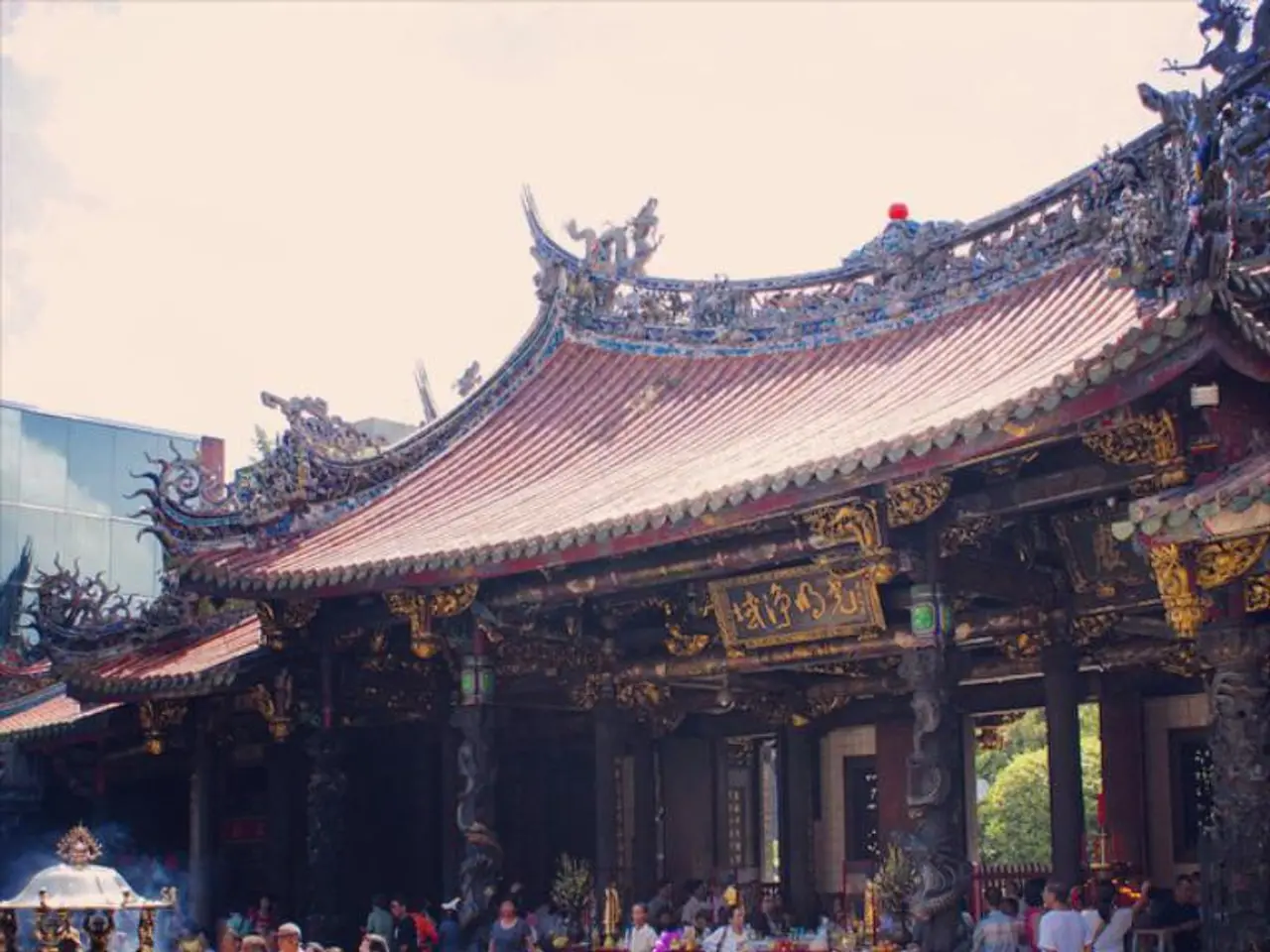Japan's ambitious attempt at installing an Ottoman prince as a ruler in Central Asia
In the early 1930s, a dramatic turn of events unfolded in the turbulent region of East Turkestan, now known as Xinjiang, China. Japan, with its ambitions for territorial expansion, aimed to establish a puppet state in East Turkestan, with Prince Abdul Kerim Efendi, grandson of Ottoman Sultan Abdulhamid II, as its head of state and Caliph.
Prince Abdul Kerim Efendi arrived in Tokyo on May 21, 1933, causing diplomatic tension due to intelligence suggesting he was intended for this role. However, the plan ultimately failed, and he left Japan for the United States, where he died by suicide in a hotel room.
The Japanese government, aided by ultra-nationalist societies like Kokuryukai and Genyousha, viewed Muslim Turkic populations in Central Asia as potential allies in reshaping the continent's future. Yet, this plan was foiled by an alliance between Turkey and the Soviet Union, according to uncovered intelligence reports from Japanese archives.
Japan had already established Manchukuo as a puppet state in Manchuria and aimed to apply a similar model in East Turkestan. The visit of a Turkish man named S. M. Osman Bey, a former Soviet intelligence officer and ex-consular clerk, to Japan in August 1933 caused a legal battle against Prince Abdul Kerim Efendi.
The visit of Prince Abdul Kerim Efendi to Japan was part of a broader world tour, according to his public statements. Around the same time, Ayaz Ishaki and Abdurreshid Ibrahim, two prominent Tatar leaders, visited Japan. They worked to shift the loyalties of the Turkic diaspora away from Japanese influence, undermining the position of Japan-aligned Tatar figure Molla Abdulhay Kurbanali, who was expelled from Japan in 1938.
Despite the claims of a formal alliance between Turkey and the Soviet Union to prevent Japan's establishment of a puppet state in East Turkestan, historical records do not support this directly. The Soviet Union played a critical role in Xinjiang to curb Japanese and nationalist Chinese influence, but explicit collaboration or alliance with Turkey on this specific issue or involving Prince Abdul Kerim Efendi is not documented.
Prince Abdul Kerim Efendi's status as a descendant of the Ottoman dynasty and former heir to the Caliphate gave him symbolic weight in the Muslim world. His death, which some close to him claimed was murder, was met with suspicion, with blame being placed on the Japanese for seeking revenge for a failed Turkestan policy.
Japan's strategy of territorial expansion was guided by the ideology of "Greater Asianism," which promoted unity among Asian peoples under Japanese leadership and sought to expel Western influence. However, Japanese ambitions for a Central Asian client state were eventually shelved as their strategic focus shifted toward Southeast Asia and the Pacific.
References:
- Beasley, W. G. (1990). The Modern History of Japan: From Tokugawa Times to the Present. Pearson Education.
- Peattie, L. (1984). Nomonhan 1939: Japan Against Russia. University of Kansas Press.
- Chen, J. (2001). China's Long March to the Twenty-first Century: The Search for Modernity. Routledge.
- Igarashi, Y. (2000). The Construction of Modern Japanese Identity: 1868-1945. University of California Press.
- Drea, E. (2009). In the Service of the Emperor: Essays on the Imperial Japanese Army. University of Kansas Press.
- Turkey, despite the claims, did not form a formal alliance with the Soviet Union to prevent Japan's establishment of a puppet state in East Turkestan, according to historical records.
- The visit of a Turkish man named S.M. Osman Bey, a former Soviet intelligence officer, to Japan in August 1933 caused a legal battle against Prince Abdul Kerim Efendi, which underscores the complex relationships among Turkey, the Soviet Union, and Japan during this period.
- The general news of the time highlights the ongoing politics in the Muslim world, with the death of Prince Abdul Kerim Efendi, a former heir to the Caliphate and a descendant of the Ottoman dynasty, causing suspicion, particularly blaming Japan for his alleged murder.
- As Japan's strategy of territorial expansion shifted from Central Asia to Southeast Asia and the Pacific, their ambitions for a client state in East Turkestan were eventually shelved, marking a significant turning point in the region's politics and economy.








